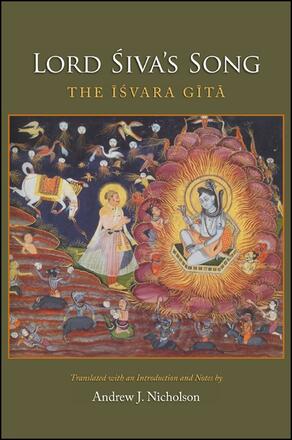
Lord Śiva's Song
The Īśvara Gītā
Alternative formats available from:
A translation of the Īśvara Gītā, a parallel text to the Bhagavad Gītā that promotes religious inclusion.
Description
While the Bhagavad Gītā is an acknowledged treasure of world spiritual literature, few people know a parallel text, theĪśvara Gītā. This lesser-known work is also dedicated to a god, but in this case it is Śiva, rather than Kṛṣṇa, who is depicted as the omniscient creator of the world. Andrew J. Nicholson's Lord Śiva's Song makes this text available in English in an accessible new translation. A work of both poetry and philosophy, the Īśvara Gītā builds on the insights of Patañjali's Yoga Sūtra and foreshadows later developments in tantric yoga. It deals with the pluralistic religious environment of early medieval India through an exploration of the relationship between the gods Śiva and Viṣṇu. The work condemns sectarianism and violence and provides a strategy for accommodating conflicting religious claims in its own day and in our own.
Andrew J. Nicholson is Associate Professor of Asian and Asian American Studies at Stony Brook University, State University of New York. He is the author of Unifying Hinduism: Philosophy and Identity in Indian Intellectual History.
Reviews
"…an important work … sure to be accessible to many interested yogis today." — San Francisco Book Review
"This is an excellent introduction to, and a sound scholarly translation of, a foundational text. Andrew J. Nicholson is a first-rate scholar." — Andrew O. Fort, author of Jīvanmukti in Transformation: Embodied Liberation in Advaita and Neo-Vedanta